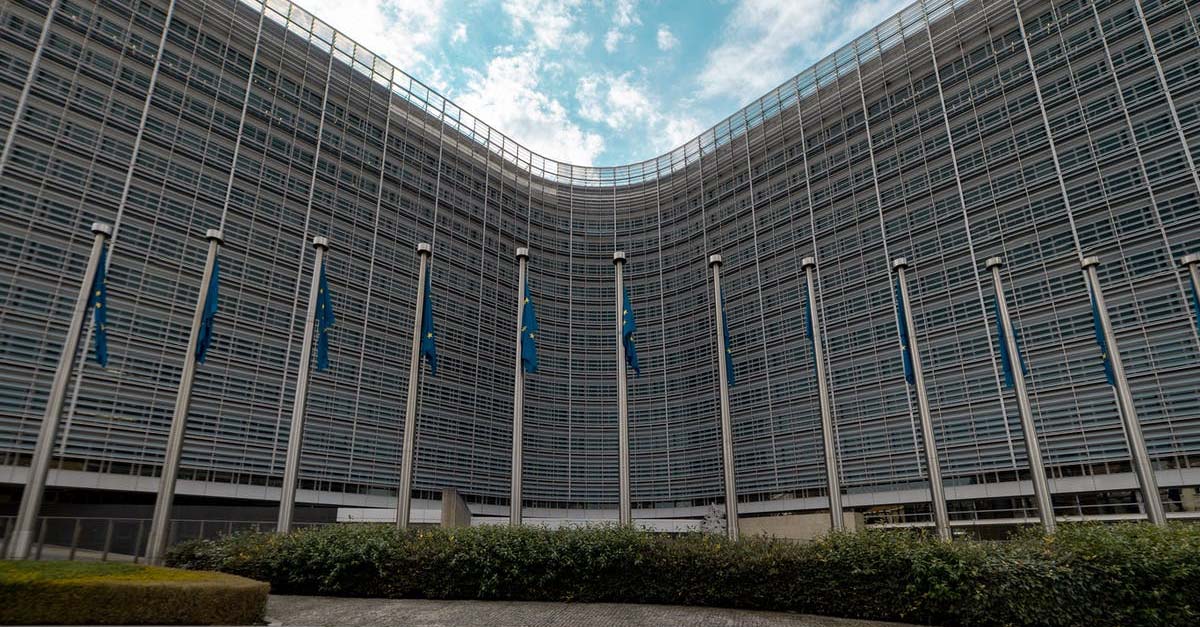Claims for anti-competitive conduct within the framework of the European Union

Introduction
As we have already commented in various publications, commercial practices between EU countries that may prevent, restrict or distort competition will be incompatible with the internal market (Article 101 of the Treaty on the Functioning of the European Union, hereinafter “TFEU”).
In this way, the TFEU establishes an express prohibition on price agreements made by companies, also known as collusion, to improve their profit margins by raising prices, among other. Consequently, the companies that are part of said agreement configure what is called or “cartel”. To prevent free competition from being eliminated or limited, the EU and the Member States have implemented a robust sanctioning mechanism, and said companies can be sanctioned in two ways: administrative and civil.
In this sense, Arts. 4 and 5 of Regulation 1/2003 allow – on the one hand – the cartel companies to be the recipient of a fine imposed by the competent body in this matter. The competent body will be the corresponding national competition authority (in Spain the National Commission for Markets and Competition, CNMC) or the European Commission . These bodies will carry out a public application of competition law, to the extent that they are in charge of implementing the sanctioning administrative route linked to its infringement. The purpose of the administrative route is to penalize companies for this illegal behavior and dissuade them from infringing competition law again.
But, in addition, those who suffer from price agreements must also be compensated for the damage suffered, so they can file a claim for damages to receive the corresponding compensation. Thus, while the administrative route had a purely sanctioning purpose, the civil route has an entirely reparatory purpose. In addition, and in civil cases, as highlighted in Art. 9.1 of the Damages Directive, what is resolved by the national competition authorities in the aforementioned administrative proceedings will be considered as irrefutable proof of the existence and illegality of the illegal behavior.< /p>
It may interest you: “Can a competitor’s name or badge be used if it hasn’t been registered as a brand?”
Competent court
Now, for these cases where there is a private application of competition law, the dilemma arises as to which is the competent jurisdiction to hear the matter.
In this sense, we must consider the application of Regulation (EU) 1215/2012 or Brussels I bis (hereinafter, “RBI”), for which the following Scopes must be met of Application: material, personal, temporal and spatial. And once we determine that said Regulation is applicable, it is verified which is the forum before which the dispute must be raised.
In this sense, there are usually three forums that can be used to determine jurisdiction in this type of case. First of all, we must attend the submission forum, whether express or implied. In this sense, due to the litigious nature of the relationship, it is necessary to highlight that it is unlikely that the victim and the perpetrator of the behavior can expressly agree on a forum to resolve their disputes. Without prejudice, if the existence of a tacit submission would be probable in accordance with the provisions of Article 26 RBI.
Next, we must attend the general forum of the respondent’s domicile (Art. 4 RBI) or the special forum by reason of matter (Art. 7.2 RBI).
With regard to the general forum of the defendant’s domicile, the courts of the country of a Member State in which the defendant has its domicile shall have jurisdiction. For the purposes of determining the domicile, it is essential to take into account that Arts. 101 and 102 TFUE can only be infringed by companies, so the domicile of legal persons must be considered for the purpose of determining the competent court. Taking into account the definition given by Art. 63 RBI, it is possible that the company has up to three domiciles in the EU, and therefore, it is possible that there are up to three competent courts for this forum.
But, in addition, and in relation to art. 7.2, establishes that claims must be filed “in criminal or quasi-delict matters, before the court of the place where the harmful event occurred or may occur”. Pursuant to this article, the competent courts will be those of the place in the Member State where the wrongful act took place. In these cases, the harmful act is the illegal antitrust and the place where it occurs, as understood by the CJEU, is where the collusive agreement was entered into. Thus, the place of the illegal act will be the one where the cartel was established.
On the other hand, in remote crimes (that is, cases in which the wrongful act is verified in one country and the damage in another), the courts will also be competent from the place of damage. In this way, the Court of Justice of the EU has adopted the thesis of ubiquity.
Lastly, in remote offenses with localized damage in different places, the courts of the place of the harmful event may hear all the damage, while those of the place of damage , only of the damage verified in that jurisdiction (mosaic thesis)
It May Interest You: “The largest compensation awarded by a Court as a result of the truck manufacturers cartel”
Applicable Law
In the framework of the European Union there is Directive 2014/104 EU. This directive establishes certain rules governing actions for damages under national law as a result of infringements of the competition law of the Member States and of the European Union.
It must be taken into account that European directives, contrary to regulations, require a law in the member countries that adopts said directive. In this way, the directive establishes the objectives to which the national measure must be adjusted. This relationship with national jurisdictions is also revealed in the first article where it is mentioned that this directive establishes the rules regarding actions for damages brought before national courts.
The mention of Regulation 864/2007 (hereinafter, Rome II) is relevant. The articles of Rome II will always be applicable, regardless of where the damage has occurred, when a Court of a Member State (hereinafter EM) is competent. In accordance with the provisions of article 1, the provisions of Rome II shall apply to civil and commercial matters.
In relation to the Rome II Regulation (non-contractual obligations), the competent European court will apply, according to article 6.3.a, the law of the affected market.
On the other hand, if the events generating the damage occurred before January 11, 2009 (Rome II), in Spain it will be governed by art. 10.9 of the Civil Code (“Non-contractual obligations shall be governed by the law of the place where the event from which they derive occurred”). In the rest of the cases, it will be necessary to comply with what is determined by the rules of private international law of each jurisdiction.
Who can the plaintiff sue in civil proceedings?
To elucidate this issue, it will be necessary to follow EU Directive 104/2014. According to its article 11, there is a joint solidarity regime among the members of the Cartel, that is, any “of the companies will be obliged to fully indemnify for the damage caused, and the injured party will have the right to demand the full compensation of any of them until they have been fully compensated. However, there is an exception to this rule, and that is if the company is a beneficiary of the leniency program or if it is an SME as defined in Commission Recommendation 2003/361/EC: “the offender is only liable to your own direct and indirect buyers when:
- its market share in the relevant market was less than 5% at any time during the infringement of competition law; and
- the application of the normal rules of joint and several liability would irreparably endanger its economic viability and make its assets lose all their value.”
However, this rule will not apply when “the SME has directed the infringement or coerced other companies to participate in the infringement, or the SME has previously been found guilty of an infringement of competition law”.
On the other hand, the leniency program will not exempt the offender from compensating his “direct or indirect buyers or suppliers ; or to other injured parties only when full compensation cannot be obtained from the other companies that were involved in the same infringement of competition law”. However, the amount of compensation to be paid by the latter will be limited to “the amount of damage caused to its own buyers or direct or indirect suppliers”.
In addition, as regards the indirect purchaser, it will be considered that “the indirect purchaser has proven that the extra cost was passed on to him if said indirect purchaser proves that:
- the defendant has committed an infringement of competition law;
- the infringement of competition law resulted in an extra cost for the direct purchaser of the defendant, and
- the indirect buyer acquired the goods or services that were the object of the infringement of competition law, or acquired goods or services derived from those or that contained them.”
Lastly, in the case of Spain, “the offender who has paid compensation may recur against the rest of the offenders for an amount that will be determined based on their relative responsibility for the damage caused” (art. 73 of the Competition Law).
In conclusion, the injured party may sue both the selective distributor from whom they purchased the product, and a< strong> member of the cartel .
What type of compensation is the plaintiff entitled to?
Article 72 of Law 15/2007 on the Defense of Competition, which coincides with article 3 of Directive 2014/104/EU, establishes that any person who has suffered harm caused by such infringement may request compensation for consequential damages (damnum emergens), loss of profits (loss of profits or lucrum cessans ), plus interests, regardless of whether these categories are defined separately or together in national rules.
Conclusion
Taking into account the difficult economic situation in which we find ourselves, companies may be tempted to carry out anti-competitive practices, however, it should be noted that the CNMC has stated that “< em>the existence of an economic crisis does not in itself justify collusive conduct between competitors”. Recent examples of sanctions for these practices are that of the cartel in the PET 18-FDG radiopharmaceutical supply market (02/02/2021), that of the cartel of six publishers of computer video games (01/20/2021), the of the cartel in the sector of automotive parts suppliers, specifically in relation to door modules and window regulators (09/29/2020).
It May Interest You: “Indemnity for trademark infringement ”






